Russet Lederman, writer, editor, and photobook collector, discusses the new Women and the Photobook pop-up library created by MA students at Falmouth.
The Women and the Photobook Pop-up library at the Bodleian Library in Oxford is a project that emerged from a Falmouth Flexible Photography MA creative brief. It was developed independently by students Philippa James, Emma Davies and Rolf Kraehenbuel with guidance from Russet Lederman.
Russet Lederman, writer, editor, and photobook collector living in New York City, shares how Women and the Photobook pop-up library came about, followed by a visitor review by photographer, writer and Falmouth MA Module Leader Colin Pantall.
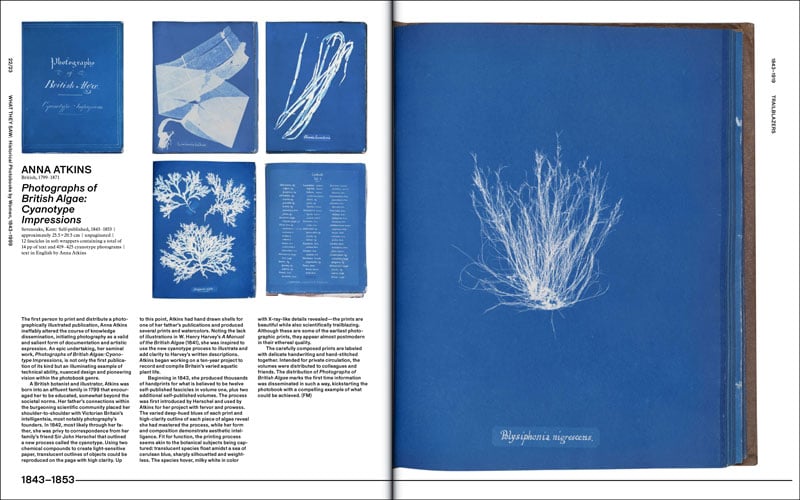
Image 1: Anna Atkins page from What they Saw: Historical Photobooks by Women, 1843-1999
Russet Lederman: In October 2022, Colin Pantall invited me to give a presentation to his students at Falmouth University on What They Saw: Historical Photobooks by Women, 1843-1999, an anthology on women’s photobooks that I co-edited with Olga Yatskevich under our non-profit imprint 10x10 Photobooks.
The lecture was followed a few weeks later by his students sharing with me their collaborative creative briefs. I was pleasantly surprised to see how What They Saw inspired them and spurred them to theoretically create a potential project on photobooks by women that would use the resources within their local communities.
After the presentations, they were so excited and asked if they could put theory into practice and realise their creative brief into a full-fledged reading room exhibition. Both Colin and I were encouraging, and thus the "Women and the Photobook” pop-up reading rooms were born!
Philippa James, Emma Davies and Rolf Kraehenbuel are the masterminds behind "Women and the Photobook," which are two reading room installations that are part of Photo Oxford. The first reading room happened on Saturday, 15 April at the Bodleian Library and allowed the incredible holdings of the Bodleian to be viewed by the public in a guided tour.
The second installation ran from 25 to 29 April at The Old Fire Station and was a hands-on sharing of books by women. Both reading rooms are inspired by What They Saw but have developed into wonderful reflections of the books by women found in libraries and collections within Oxford.
As a non-profit with a mission to share photobooks with the global community, "Women and the Photobook" perfectly aligns with 10x10 Photobooks' objectives. Encouraging students like Philippa, Emma and Rolf to create projects that support their local community while sharing forgotten or hard to find photobooks encapsulates the best of what we seek to accomplish!
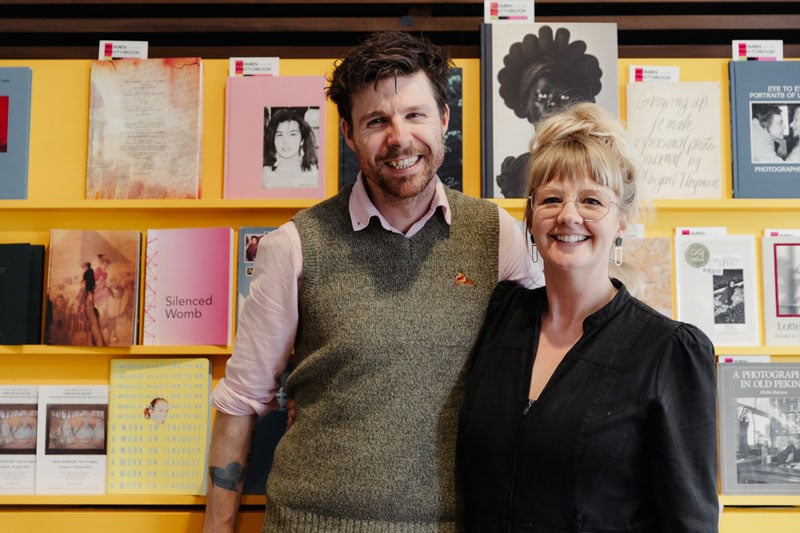
Image 2: Philippa James and Phillip Roberts (the Bodleian Libraries Curator of Photography)
Colin Pantall: Approaching the Bodleian Weston library in Oxford on a sunny Saturday afternoon in April, you pass through a typical Oxford scene, masses of tourists mix with groups of Morris dancers in town for the Oxford folk festival, all long socks and jingling bells, colleges touting for the tourist pounds with their come-and-have-a-look-at -our-quad-for-a-fiver signs.
Then you hit the library, the frenetic clash of tourism and college life subsides, and you spot a table laden with photobooks and the welcoming face of Philippa James, the organiser (with Emma Davies and Rolf Krahenbuehl) of the first UK “Women and the Photobook” pop-up reading room.
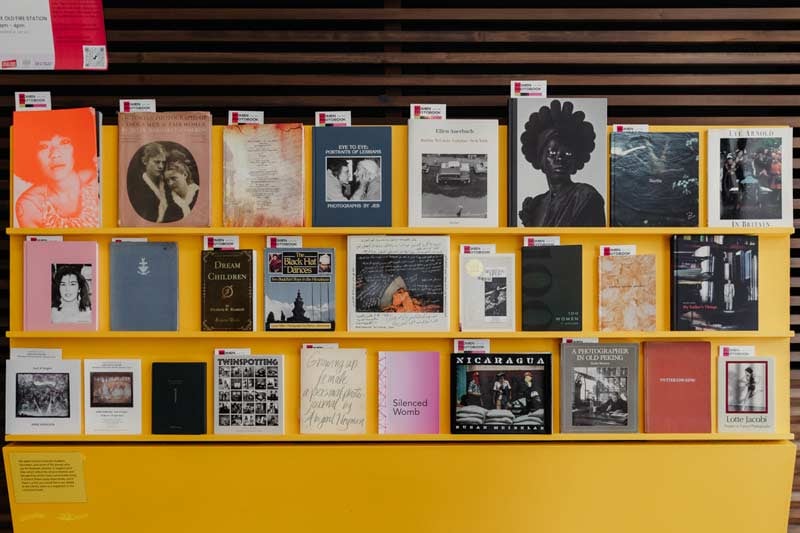
Image 3: Some of the books in the open-access reading room
The first part of the reading room is an open access area where shelves of books, including the What they saw… catalogue, were available to view and read. The range of titles counter the idea that there was one kind of photobook, or one subject area particular to women.
Susan Meiselas’s Nicaragua hits the more photojournalistic end of the spectrum with her immersive and very dangerous approach to photographing the Nicaraguan Revolution and linking to key photo-texts such as Alice Seeley-Harris’ The Camera and the Congo Crime, a 1906 pamphlet that doesn’t appear in any other photobook history, but was part of the most successful photography-based campaign ever made.
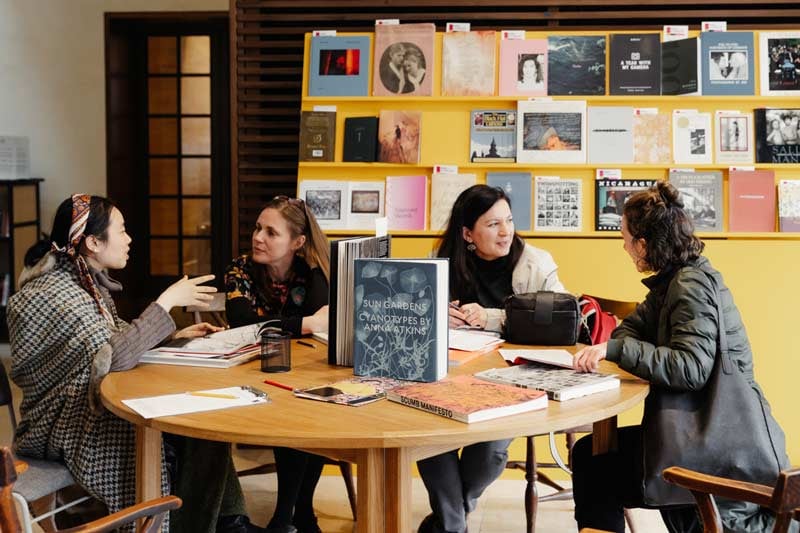
Image 4: The open-access reading room
In Somnyama Ngonyama ("Hail The Dark Lioness") South African photographer and visual activist Zanele Muholi manipulates traditional aesthetics to create more than 80 self-portraits addressing the politics of race and representation.
There are personal texts such as Abigail Heyman’s Growing up Female, as well as books where collage is a tool for reconfiguring the past. Justine Kurland’s Scumb Manifesto is a pointed but playful recontextualisation of the canon of male photobooks, with some of the classics of photobook history cut up to make Kurland’s unique collages, the Scumb of the title standing for Society for Cutting Up Men’s Books.
Jenny Rova’s I would also like to be is another type of collage, but here Rova sticks pictures of her own face over the face of her ex-boyfriend’s new girlfriend in a book fitting its subtitle A work on jealousy.
For the second stage of the reading room, we are led up a back stairway, through a row of corridors to a private reading room in which a selection of rare books from the library’s collection are on display.
Curated by Philippa (whose boundless energy went a long way to ensuring these books were shown) and Phillip Roberts (the Bodleian Libraries Curator of Photography), these works further expanded the idea of what a photobook could be.
Julia Schlosser’s cyanotype image of her recently deceased cat, Alex, is the simplest work on display, a single life-sized page folded to make a small zine. The most complex is First You Have to Prove it to Me by Veronika Schapers, a multi-layered book that looks at the variety of conspiracy theories surrounding Covid.
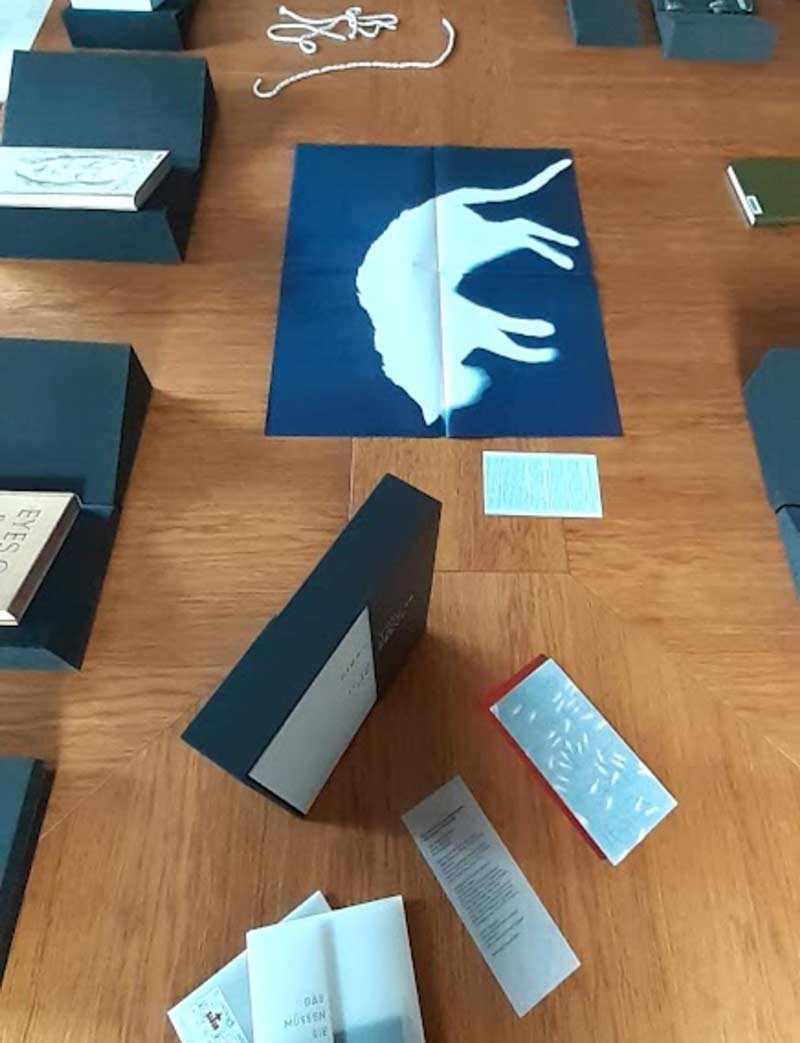
Image 5: Image of Julia Schlosser’s book on Alex
All the books were available to touch except for Julie Margaret Cameron’s Idyll of the Kings, a large format album of Cameron’s defining images, complete with all tipped in prints exhibiting the beautiful flaws of Cameron’s process.
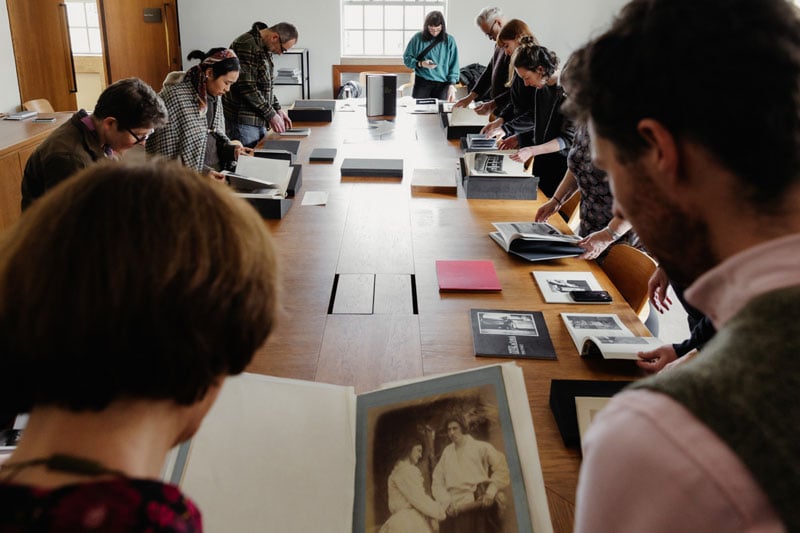
Image 6: Readers viewing Idyll of the Kings by Julia Margaret Cameron
Other books ranged from original editions of Diane Arbus’ Aperture Monograph, Sirkka Liisa Kontinnen’s Byker, and Margaret Bourke-White’s fascinating book on the Soviet Union in the 1920s, a book where the text begins with an insight into the visa-procurement procedure.
For the rare books reading room, time was limited to 30 minutes to allow as many people as possible to view. It was not enough, but anyone who wants more time with the books can always visit the collections independently, fulfilling yet another of the Women in Photobooks’ brief.
Not only was the idea of what a photobook can be expanded, new audiences both for photobooks and the library’s collection were also found in what was the first UK Women and the Photobook reading rooms.
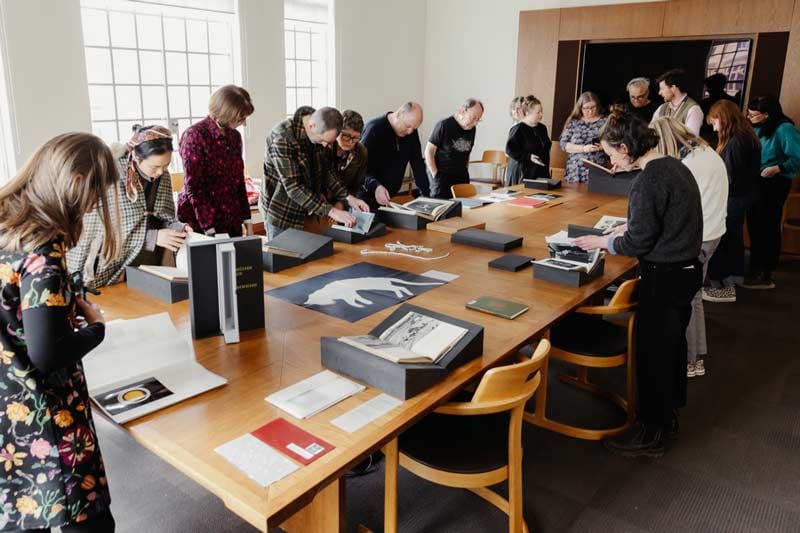
Image 7: The rare books reading room
The Reading Room was made possible through the sponsorship of A Year with my Camera.
See Philippa James’ 100 Women of Oxford here
Women and the Photobook is a non-profit organisation who aim to tour annually. If you are interested in submitting a photobook to their library please email: hello@philippajames.net.
Read more about Photobooks in previous blogs:
- The Grid: Bringing Order, Comparison and Narrative to the Story
- Laia Abril and Rafal Milach: Windows on the world of Misogyny
- Women and Photobooks: Unwriting History
- Photobooks and Collaboration
- Photobooks and the City Destroyed
- Ernest Cole, Photography and Justice
- Photography and Brexit
- Photography and Grief
 Colin Pantall is a photographer, writer and lecturer and teaches on the MA Photography programme at Falmouth University.
Colin Pantall is a photographer, writer and lecturer and teaches on the MA Photography programme at Falmouth University.
.webp)




